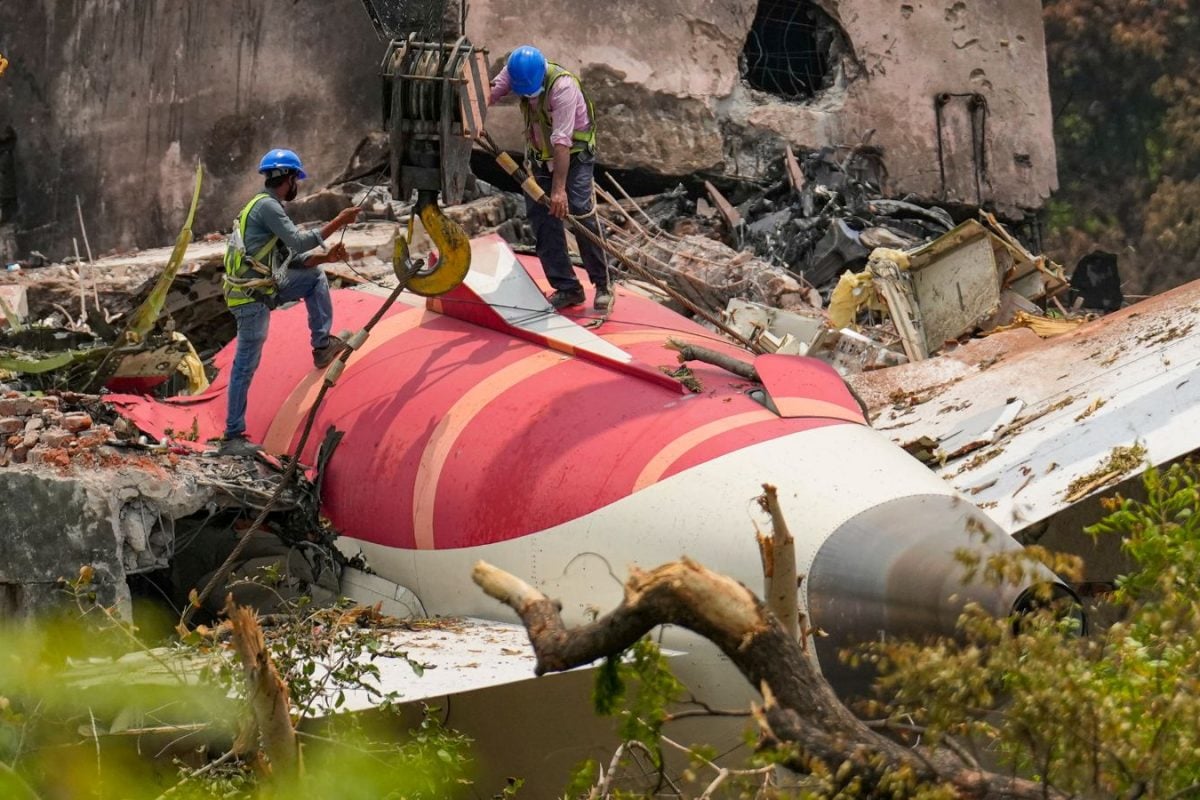

The investigation into the Air India Flight 171 crash that occurred on June 12, 2025, is intensely focused on the mechanical and technical aspects of the aircraft, according to sources close to the inquiry. The flight, bound for London, crashed shortly after takeoff from Ahmedabad, resulting in a tragic loss of 260 lives.
A preliminary report by the Aircraft Accident Investigation Bureau (AAIB) revealed that the fuel control switches of the Boeing 787 Dreamliner were moved from the "RUN" to the "CUTOFF" position within seconds of takeoff. This action effectively cut off the fuel supply to both engines, leading to the crash. The report also highlighted a perplexing conversation between the pilots, with one asking, "Why did you cut off?", and the other responding, "I did not do so".
This revelation has led investigators to scrutinize all mechanical and technical elements, including the fuel control switches, the engines, and the aircraft's systems. India's civil aviation regulator, the Directorate General of Civil Aviation (DGCA), has directed airlines to inspect the locking mechanisms of fuel control switches on Boeing 787 and certain 737 models. Air India has stated that its engineers have completed these inspections and found no issues with the fuel switches.
The AAIB's preliminary report didn't offer any conclusions about the cause of the crash but indicated that the fuel switches were moved abruptly. It also referenced a 2018 advisory from the U.S. Federal Aviation Administration (FAA) recommending that airlines inspect the locking feature of fuel cutoff switches on Boeing models.
Despite the focus on the fuel switches, investigators are also considering other potential mechanical or technical issues. Initial speculation about engine failure or incorrect restart procedures has been largely ruled out due to a lack of supporting evidence in the flight data recorder. The probe is also looking into the aircraft's emergency power system, with reports suggesting that the backup ram air turbine (RAT) was deployed at the time of the crash.
However, the preliminary findings have sparked controversy, with some aviation experts suggesting human error as a possible cause. This speculation has been met with strong opposition from pilot associations. The Indian Commercial Pilots Association (ICPA) and the Airline Pilots' Association of India (ALPA India) have rejected claims of human error, calling them "reckless and unfounded insinuations". The Federation of Indian Pilots (FIP) has also expressed dissatisfaction with the preliminary report, objecting to the exclusion of pilot representatives from the investigation. They argue that the report selectively uses paraphrased cockpit voice recordings to suggest pilot error and question the flight crew's competence.
Air India CEO Campbell Wilson has cautioned against premature conclusions, emphasizing that the investigation is ongoing. He stated that the preliminary report identified no cause and made no recommendations, urging everyone to avoid drawing hasty inferences.
As the investigation continues, a thorough examination of all mechanical and technical aspects remains a priority. Investigators are meticulously analyzing flight data, cockpit voice recordings, and aircraft maintenance records to determine the sequence of events that led to the tragic Air India crash.